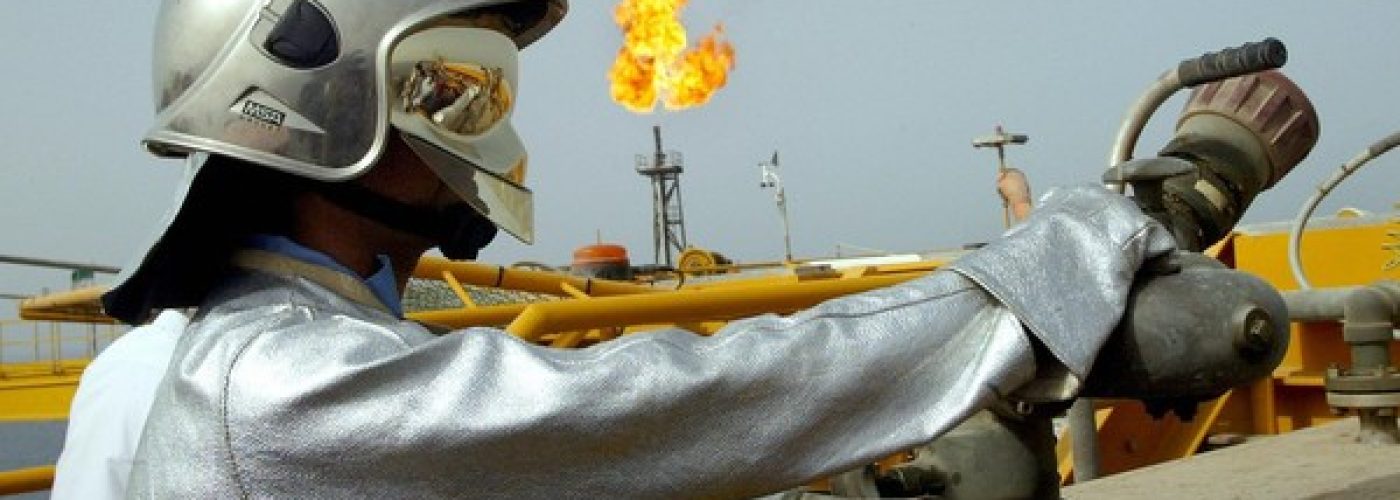 ©AFP
©AFPSaudi Arabia has taken steps to slow Iran’s efforts at increasing oil exports, banning vessels that transport Iranian crude from entering their waters, according to traders and shipbrokers.
Iran already faces insurance, financing and legal obstacles despite the lifting of sanctions linked to its oil industry in January.
Under a nuclear deal with world powers, Iran was allowed to resume crude exports to Europe and other destinations.
Since the lifting of sanctions, Iran has managed to sell only small volumes of crude to Europe, including barrels to Spain’s Cepsa, Total of France and Russia’s Litasco.
By mid-April, only about eight tankers will have sailed from Iran’s Kharg Island for Europe, said shipbrokers, with only 12m barrels booked to sail.
Iranian vessels carrying the country’s crude are restricted from entering ports in Saudi Arabia and Bahrain, according to a circular sent by a shipping insurance company to its members in February.
The notice said ships that have called to Iran as one of its last three ports of entry will also require approval from the Saudi and Bahraini authorities before entering their waters. Shipbrokers and traders have relayed the same messages since.
Iranian oil executives have expressed their concern about the message circulating in the market, saying it is only adding to problems they face in selling their crude.
Saudi Aramco, the state oil company, and The National Shipping Company of Saudi Arabia (Bahri) did not respond to requests for comment.
Iran is also yet to regain access to storage tanks at a key oil transit hub on Egypt’s Mediterranean coast, which is part-owned by Saudi Arabia.
Oil tanker association Intertanko and other industry participants say no formal notice has been given by Saudi Arabia but uncertainty is making some charterers less willing to lift Iranian crude.
”It’s seen as an unknown risk,” said one shipbroker. “No one wants to disrupt their relationship with the Saudis.”
The amount of oil being stored at sea off the coast of Iran has risen by 10 per cent since the start of the year, data from maritime data and analytics company Windward show, and now stands at more than 50m barrels.
Diplomatic tensions between Saudi and Iran, which have worsened during the bloody conflict in Syria, are seen influencing the commercial sphere with both countries battling for market share amid the collapse in oil prices.
Major oil producers are set discuss plans to freeze output on April 17 — the first concerted action to halt an oil price rout that has shredded producer country budgets.
But last week Deputy Crown Prince Mohammed bin Salman said Saudi Arabia would not hold output steady unless joined by Iran, which has said it plans to regain its post-sanctions output level before agreeing to any freeze.
Part of the slow increase in exports to Europe has been the lack of access for Iran to facilities operated by the Arab Petroleum Pipeline Company, known as SUMED.
Before the imposition of sanctions Iran used to send crude from the Red Sea to the Mediterranean on the company’s lines.
The facility is 50 per cent owned by Egypt, with Gulf Arab allies Saudi Arabia, Kuwait and the UAE together owning 45 per cent.
Some traders believe Saudi is blocking Iran’s access to SUMED, though others have said it is possible a pre-sanctions contract could be resumed in time. SUMED did not return calls seeking comment.
Once the second-largest oil producer in Opec, Iran’s exports dropped to about 1.1m b/d last year, half their pre-sanctions level.
Iran’s oil minister Bijan Zangaeh said Sunday exports of crude and condensate have reached 2m b/d, though this is higher than many estimates.
Some of Tehran’s problems have been self-imposed, traders said, with the country reluctant to discount its crude and attaching stringent destination clauses and other stipulations to its sales.
Insurance and US banking restrictions also remain. Charterers of vessels for moving Iranian barrels have at times paid premiums of almost a third.
“Shipowners are charging above market rates given the problems with insurance, in particular,” said another shipbroker.
Additional reporting by David Sheppard
Copyright The Financial Times Limited 2016. You may share using our article tools.
Please don’t cut articles from FT.com and redistribute by email or post to the web.





